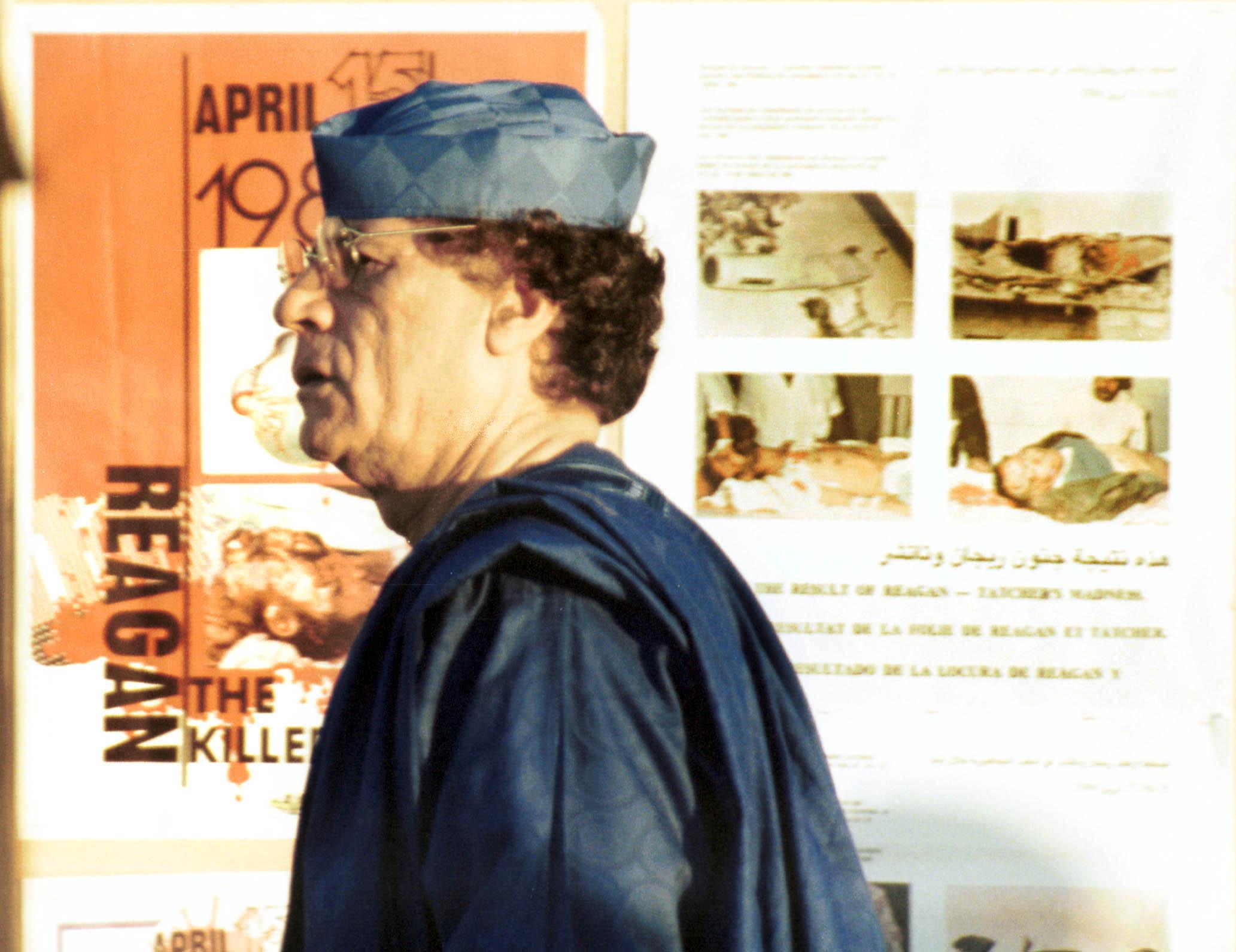As you may have heard, Muammar Qaddafi’s death was predicted by a short-lived, little-seen, Matthew Perry-starring 1987 sitcom called Second Chance. The sitcom began in the future: Perry’s character dies in a hovercraft accident, then gets a “second chance” to fix a mistake he made back in ’87. Before we see Perry’s character, though, there’s an opening gag about Qaddafi going to hell. He’s just died. It’s July 29, 2011.
Pretty close. But not the first time some piece of pop culture detritus has hit upon the rough date of a major world-historical event: In 1969, Rowan & Martin’s Laugh-In joked (in a “News of the Future” segment) that, in 1988, Ronald Reagan would be president—and, in 1989, the Berlin Wall would come down.
That prediction topped a list on the website Cracked earlier this year, of “8 Absurd Jokes That Predicted Real-Life Events.” As the list demonstrates, the easiest way to predict the future on a sitcom or sketch show is to exaggerate the contemporary excesses of American culture: Imagine a razor with five blades, a sandwich made entirely of meat, or a reality show about wife-swapping. The Onion has managed this trick more than once.
Also fertile ground for pop-culture prognostications: sporting events. Sure, a New Orleans vs. Indianapolis Super Bowl might have seemed unlikely in 1998, but there are only so many NFL teams—the odds against one are hardly staggering. Back to the Future II may not have predicted the 1997 World Series, but it did imagine a playoff matchup between the Cubs and a team in Miami. Of course, Major League Baseball has been expanding for decades, so a team in a major American metropolis, even one in Florida, was hardly divinatory.
The Marlins’ trip to the World Series wasn’t the only part of the future Back to the Future II got sort of right: With a bit of stretching, you can find at least 10 other examples. Science fiction is almost certainly the best place to look for such (mostly minor) prophecies: From Arthur C. Clarke to Philip K. Dick, sci-fi writers have been predicting the future for decades.
All of which is fun, if not especially remarkable: In nearly every example, someone has picked up on an element of the present—and then happened to envision some future detail about it correctly. In 1987, Qaddafi was in the news, and a lot of Americans wanted him dead. (The U.S. bombed Libya in ’86.) In 1969, Ronald Reagan had just recently run for president, and Nixon had visited the Berlin Wall.
And, as conspiracy theorists seem so wont to forget, the World Trade Center was bombed in 1993. So all those seeming warnings and forecasts—from The Long Kiss Good Night to The Lone Gunmen, HBO specials to Spider-Man cartoons—required neither clairvoyance nor special knowledge.
Which isn’t to say the odd, pop-cultural coincidence doesn’t occasionally appear out of nowhere. I’ve no idea why Yes, Dear connected Tiger Woods and sex in 2005, or how Clarissa Explains It All came up with Cowboys & Aliens. And, while I’m no conspiracist, that Simpsons thing is pretty weird.
